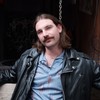Photo via the CBS Photo Archive / Getty Images
Imagine being there, in the spring and summer of 1969, while The Beatles recorded Abbey Road—sitting in the studio while they fiddled with their parts, cracked jokes, and played take after take until they finally laid down the final, immaculate versions of songs like "Something" and "Oh! Darling." It's difficult to place yourself in that room—but thanks to a new 50th anniversary box set of the album, it's a little easier to try.On September 27, Apple Corps Ltd. is reissuing Abbey Road, newly mixed by Giles Martin, the son of the record's original engineer, George. Arguably the most exciting part of the release are 23 never-before-heard outtakes and demos, which give us a glimpse at what it was actually like to make the album.On Friday, Apple released an early, intimate take of "Come Together." Listening to it almost feels like being somewhere you're not supposed to be—like you've somehow snuck into the studio and you're witnessing something no one's ever seen before.From the jump, we get to hear John Lennon laugh and call off the take, complaining about some Beatle who came in too early. He counts off, and the band locks into the groove—but Lennon's singing is raw, and loose, and more strained than it is on the final cut. He runs out of breath, struggling to get all of "one thing I can tell you, you just got to be free" out. His voice cracks on the words "come together." Ultimately, the band falls apart, and Lennon starts throwing random lines together—"he roller coaster, he's got early warning"—until the music stops, they start bantering, Paul McCartney runs a few scales on the bass, and Lennon gets exasperated."Ugh," he sighs. "I'm losing my cool."Martin told Rolling Stone including little snippets of dialogue like that was an intentional choice—a way to make listeners feel closer to the recording process, and the magic of how these songs came to be."I like trying to find as much speech as possible—it humanizes it,” he said. “You hear John Lennon talk, then he suddenly starts singing, and you think: It’s that fucking simple? That’s all I have to do? He just starts singing and it makes the sound of John Lennon? There’s no process there? It’s the same microphone? There’s no switch being turned? I think that changes it."Sign up for our newsletter to get the best of VICE delivered to your inbox daily.Follow Drew Schwartz on Twitter.
Advertisement
